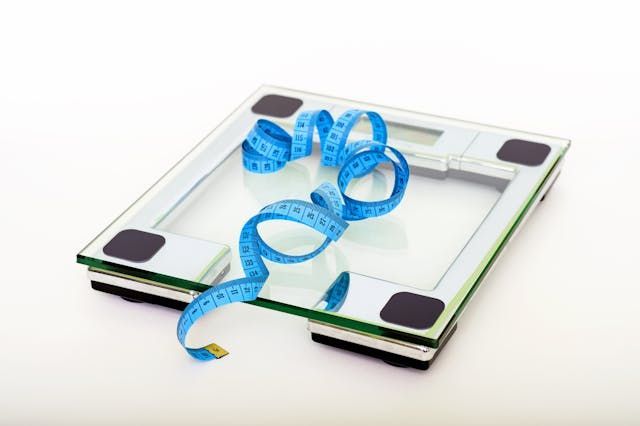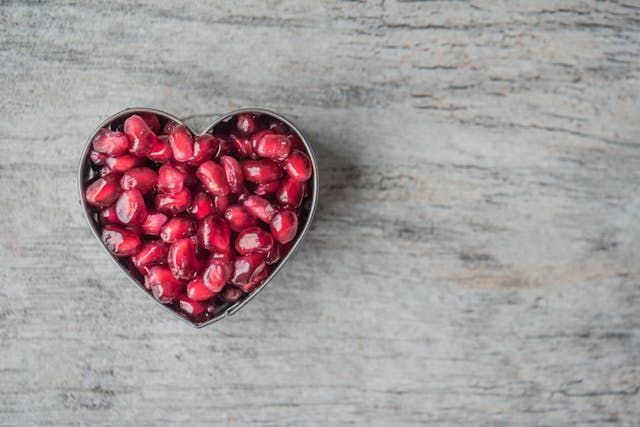How Many Calories to Eat for Weight Loss

Are you tired of feeling like you're in a constant battle with your weight and health?
Are you tired of trying countless diets and programs, only to end up feeling frustrated and defeated? If so, you're not alone. Men approach weight loss more for their health. Women especially those of the peri and postmenopausal stage, often find themselves facing a myriad of challenges when it comes to maintaining a healthy weight, looking good, and feeling our best.
I understand the struggles you face. From the relentless fatigue to the frustrating bloating and stubborn weight gain, it can feel like an uphill battle with no end in sight. But here's the thing: you're stronger than you know, and you have the power to take control of your health and reclaim your vitality, you just need a little guidance.
That's where I come in. As a functional nutritionist with over 25 years of experience, I've dedicated my life to helping people like you navigate the complexities of weight loss and health restoration. I'm here to be your guide and your biggest cheerleader on this journey toward better health and well-being.
Many people are wondering, “What should I eat to lose weight?” or “How many calories should I eat to lose weight?” These are important questions that can be answered when we have a deeper understanding of what you should eat vs what you want to eat! And how those choices are affecting your health.
Let’s start with “How many calories should I be eating to lose weight?”
Do you have any idea how many calories you are eating? Most people don’t.
Now, I know what you might be thinking – keeping track of every morsel that passes your lips sounds daunting, maybe even a little tedious. But trust me when I say that food logging is so much more than just jotting down what you eat.
Food logging is a game-changer. It's a tool that empowers you to become more aware of your eating habits, understand how different foods affect your body, and take control of your nutritional intake. By simply taking a few minutes each day to log your meals and snacks, you can gain invaluable insights into your dietary eating patterns, identify potential triggers for weight gain or health issues, and make informed choices that support your weight loss goals.
But, most importantly, food logging is a powerful act of self-care and self-awareness. It's about showing up for yourself, honoring your body, and taking proactive steps towards a healthier, happier you. Let’s uncover why.
When Blood Sugar Is High, why
Blood sugar – it's a term we often hear, but do we truly understand its impact on our weight and overall health? Let's look into this crucial intersection between what we eat and how it affects our bodies.
The Role of Blood Sugar in Weight Gain
First, let's demystify blood sugar. Also known as glucose, it's the primary source of energy for your body, fueling everything from our brain functions to our physical activities. When we eat, carbohydrates from our food are broken down into glucose, which enters our bloodstream, providing energy to our cells.
Now, here's where it gets interesting: the level of glucose in our bloodstream is tightly regulated by insulin, a hormone produced by the pancreas. When blood sugar levels rise after a meal, insulin helps shuttle glucose into our cells to be used for energy or stored for later use. This process ensures that our blood sugar remains within a healthy range.
However, when we consume excess carbohydrates or sugars, our blood sugar levels can spike, leading to a surge in insulin production. Over time, this can strain our insulin-producing cells and lead to insulin resistance, a condition where our cells become less responsive to insulin signals. As a result, our body's ability to regulate blood sugar effectively is compromised, paving the way for weight gain and other health issues.
Unstable Blood Sugar and Weight Loss Efforts
Now, let's talk about the impact of unstable blood sugar levels on our weight loss efforts. When our blood sugar levels fluctuate wildly – spiking after high-carb meals and crashing shortly afterward – it sets off a chain reaction in our bodies that can sabotage our weight loss goals.
Firstly, those post-meal energy crashes can leave us feeling tired, irritable, and craving more sugary or high-carb foods to replenish our energy levels. This cycle of energy highs and lows can lead to overeating, especially if you reach for foods that are close but not healthy, ultimately contributing to weight gain.
Moreover, unstable blood sugar levels can interfere with our body's ability to burn fat for fuel, making it harder to shed those stubborn pounds. When blood sugar levels are elevated, insulin promotes the storage of excess glucose as fat, rather than allowing our bodies to tap into our fat stores for energy. This can create a vicious cycle where we struggle to lose weight despite our best efforts.
How to Control Unstable or High Blood Sugar
But here's the good news: you have more control over your blood sugar levels than you might think. By making simple yet impactful changes to your diet and lifestyle, you can stabilize your blood sugar and support your weight loss goals.
First, start by focusing on real food. Eat plenty of fresh vegetables, lean proteins, healthy fats, and high-fiber foods, which help slow the absorption of glucose into your bloodstream and promote steady energy levels.
Secondly, prioritize regular physical activity, which helps improve insulin sensitivity and promotes better blood sugar regulation. Research shows that even small changes, like a 10-minute walk after dinner or incorporating strength training exercises, can make a big difference in your overall health and weight loss journey.
By initially making small but proactive steps to stabilize your blood sugar through diet and lifestyle choices, you can unlock the key to sustainable weight loss and better health. Remember, you have the power to make positive changes that will transform your life for the better. Consistency will be huge in the early stages.
Connecting What You Eat and Your Blood Sugar After Eating
We just discussed blood sugar and why having it stable is so important. Now we need to make the connection between what we eat and the stability of our blood sugar after eating.
Are you ready to take the first step towards blood sugar control, achieving your weight loss goals, and reclaiming your health? Let's talk about the powerful benefits of keeping a food log – a simple yet effective tool that can transform your approach to nutrition and wellness.
Increased Awareness of Eating Habits
One of the most significant benefits of food logging is the increased awareness it brings to your eating habits. When you take the time to record everything you eat and drink throughout the day, you become more mindful of your dietary choices and patterns. You'll start to notice trends, such as times of day when you're most likely to snack or certain foods that tend to trigger cravings.
This heightened awareness empowers you to make more informed decisions about your food choices and intake. Instead of mindlessly reaching for that afternoon snack or indulging in unhealthy cravings, you'll pause and consider whether it aligns with your goals and nourishes your body. Over time, this mindful approach to eating can lead to healthier choices and better outcomes for your weight loss journey.
Identifying food Triggers
Food logging also serves as a valuable tool for identifying triggers that may be sabotaging your
weight loss efforts. By tracking your meals and snacks, you'll start to notice patterns in your eating behavior and the factors that influence your food choices.
Perhaps you tend to reach for sugary snacks when you're stressed or turn to comfort foods during periods of boredom (like watching mindless TV at night). Or maybe you find yourself overeating in social situations or when dining out with friends. By pinpointing these triggers, you can develop strategies to address them proactively and find healthier ways to cope with emotions or situations that may lead to overeating.
Food Tracking Progress
Another benefit of food logging is the ability to track your progress towards your weight loss goals. By recording your meals and snacks consistently, you'll have a clear picture of your dietary intake and how it aligns with your calorie and macronutrient targets.
This tracking allows you to monitor your adherence to your nutrition plan and make adjustments as needed to stay on course. It allows you to see the ebb and flow of your eating choices and the effects they have on your body and the scale. It’ll give insights into whether you are overeating sugar or consistently hitting your daily protein goal.
Regulating Blood Sugar Levels
Now, let's talk about how food logging can specifically help regulate blood sugar levels – a key factor in supporting your weight loss journey. By monitoring your carbohydrate intake and meal timing, you can gain valuable insights into how different foods affect your blood sugar levels and energy levels throughout the day.
For example, you may notice that meals high in packaged foods that are known as refined carbohydrates can cause your blood sugar to spike and crash shortly afterward, leaving you feeling tired and hungry. By adjusting your vegetables, and starch in a meal you can include more fiber-rich carbohydrates, lean proteins, and healthy fats, you can stabilize your blood sugar and maintain steady energy levels throughout the day.
Additionally, food logging allows you to experiment with meal timing and portion sizes to find the optimal balance for blood sugar regulation. You'll learn how spacing out your meals and snacks evenly throughout the day can prevent energy crashes and keep your metabolism humming along smoothly.
How to Start Food Logging for Blood Sugar Control and Weight Loss
There may be an awareness disconnect between your doctor saying your blood sugar is too high and the food you are eating. Are you ready to take the first step towards harnessing the power of food logging to achieve your weight loss goals and improve your health? Let's dive into some practical tips to help you get started on this transformative journey.
Choosing a Food Logging Method
The first step in starting your food logging journey is choosing a method that works best for you. Whether you prefer the simplicity of pen and paper or the convenience of a smartphone app, there are countless options available to suit your preferences and lifestyle.
- Journaling: Keeping a food journal allows you to physically write down everything you eat and drink throughout the day. This tactile approach can be incredibly effective for some individuals, providing a tangible record of your dietary intake.
- Mobile Apps: Alternatively, you may opt for a mobile app specifically designed for food tracking. These apps often come equipped with features such as barcode scanning, meal planning, and nutrient analysis, making it easier than ever to log your meals on the go.
Choose a method that feels intuitive and accessible to you, ensuring that you'll be more likely to stick with it in the long run.
Setting Blood Sugar Goals Through Food Logging
Next, it's essential to establish clear goals for your food log journey. What do you hope to achieve by tracking your meals and snacks? Whether your goal is to lose weight, improve your blood sugar and energy levels, or simply gain a better understanding of your eating habits, having a clear vision will help guide your efforts and keep you motivated along the way.
Consider setting both short-term and long-term goals that are specific, measurable, and achievable. For example, you might aim to log your meals consistently for one week or strive to stay within a certain calorie or macronutrient range each day. By breaking down your goals into manageable steps, you'll set yourself up for success and build momentum towards your ultimate objectives.
Being Honest and Accurate with Your Food
Perhaps the most crucial aspect of food logging is honesty and accuracy. It's essential to record everything you eat and drink, including portion sizes and any snacks or beverages consumed throughout the day. Remember, your food log is a tool for self-awareness and empowerment, not judgment.
More controlled blood sugar and weighing less, or eat what you want when you want? You can’t have both, especially starting in your 40’s through menopause. The choice is yours and you need to own it. You will have chronic health issues if you eat pizza each day or never eat a fresh vegetable.
Be honest with yourself about your eating, even when it may not align with your goals. Every entry in your food log provides valuable insights into your eating habits and patterns, helping you identify areas for improvement and make positive changes over time.
Food Logging as Empowering
Finally, I encourage you to shift your perspective and view food logging as a positive and empowering practice rather than a chore. Instead of approaching it with dread or reluctance, embrace it as a tool for self-care and self-discovery.
Food logging doesn’t have to be forever but long enough that you understand how your food choices are affecting your health.
Food logging is a tool that can empower you to take better control of your blood sugar, giving you the knowledge and awareness you need to make informed choices about your nutrition. By logging your meals and snacks, you're investing in yourself and prioritizing your long-term health and happiness.
Tips for Effective Food Logging
To help you make the most out of this powerful tool, here are some tips to ensure your food logging efforts are effective and rewarding.
1. What to Log
When it comes to food logging, the more detailed, the better. Aim to record the following information for each meal and snack:
- Food Items: Write down everything you eat and drink, including portion sizes and any condiments or toppings.
- Macronutrients: Keep track of the macronutrient content of your meals, including carbohydrates, proteins, and fats. This will give you a better understanding of your overall nutrient intake and help you make informed choices.
- Meal Times: Note the time of day you consume each meal or snack. This can help you identify patterns in your eating habits and optimize meal timing for better energy levels and blood sugar control.
2. Strategies for Overcoming Challenges
Eating out or dealing with emotional eating can pose challenges when it comes to food logging, but with the right strategies, you can navigate these situations successfully:
- Eating Out: When dining out, do your best to estimate portion sizes and choose healthier options whenever possible. Look for grilled or steamed dishes, choose dressings and sauces on the side, and practice portion control by sharing meals or saving half for later.
- Emotional Eating: Emotional eating can often lead to mindless overeating, making it challenging to track your food intake accurately. Before reaching for food in response to emotions, take a moment to pause and assess your feelings. Consider alternative coping mechanisms such as deep breathing, journaling, or going for a walk to address underlying emotions without turning to food.
3. Using Food Logging for Self-Reflection
Beyond simply tracking your meals and snacks, food logging can serve as a powerful tool for self-reflection and learning about your body and habits. Here's how:
- Identify Patterns: Review your food logs regularly to identify patterns in your eating habits, such as triggers for overeating or times of day when you're most likely to snack. This awareness can help you make positive changes and break unhealthy cycles.
- Experiment and Adjust: Use your food logs to experiment with different meal compositions, portion sizes, and meal timing strategies. Pay attention to how these changes affect your energy levels, hunger cues, and overall well-being, and adjust accordingly based on what works best for you.
- Acknowledge Progress: Finally, don't forget to acknowledge your progress along the way. Whether it's reaching a new milestone in your weight loss journey or making healthier choices consistently, acknowledge your achievements and use them as motivation to keep moving forward.
Blood Sugar and Calorie Control by Using food Logging
Food logging isn't just about keeping track of what you eat – it's a powerful tool that can help you optimize your blood sugar levels, manage your calorie intake, and support your weight loss journey. Let's explore how you can leverage your food logs to achieve better blood sugar regulation and calorie control.
1. Analyzing Food Logs for Patterns
The first step in using your food logs for blood sugar and calorie control is to analyze them for patterns and trends. Take a closer look at your food intake over several days or weeks and pay attention to the following:
- Carbohydrate and Sugar Intake: Identify sources of carbohydrates and sugar in your diet and assess their impact on your blood sugar levels. Look for patterns of high-carb meals or snacks that may be contributing to spikes and crashes in your blood sugar.
- Meal Timing: Note the timing of your meals and snacks throughout the day. Are there long gaps between meals that lead to overeating or low energy levels? Or do you tend to graze continuously, eating sugar and carbohydrates frequently throughout the day, making it challenging to regulate your blood sugar?
- Portion Sizes: Evaluate your portion sizes and portion control habits. Are you consistently overeating or underestimating serving sizes? Adjusting portion sizes can have a significant impact on both blood sugar regulation and calorie control.
2. Adjusting Macronutrient Ratios and Meal Timing
Once you've identified patterns in your food logs, you can make targeted adjustments to optimize your blood sugar levels and support your weight loss goals:
- Balancing Macronutrients: Experiment with adjusting the ratio of carbohydrates, proteins, and fats in your meals to find what works best for you. For example, reducing your intake of refined carbohydrates and increasing your consumption of protein and healthy fats can help stabilize blood sugar levels and keep you feeling full and satisfied.
- Meal Timing: Consider experimenting with meal timing strategies, such as spacing out your meals evenly throughout the day or incorporating intermittent fasting. This can help prevent blood sugar spikes and crashes, regulate hunger hormones, and promote better calorie control.
3. Encouraging Experimentation and Personalization
It's important to remember that there's no one-size-fits-all approach to blood sugar and calorie control. Each person's body is unique, and what works for one individual may not work for another. That's why it's essential to encourage experimentation and personalized approaches based on individual needs and preferences:
- Listen to Your Body: Pay attention to how different foods and meal combinations affect your energy levels, mood, and cravings. Trust your body's signals and adjust your food choices accordingly.
- Be Patient and Persistent: Achieving optimal blood sugar regulation and calorie control takes time and persistence. Don't be discouraged by setbacks or challenges along the way. Use your food logs as a roadmap for making gradual, sustainable changes to your diet and lifestyle.
- Seek Support and Guidance: Don't hesitate to seek support and guidance from a Dr. Plank or other nutrition expert if you're struggling to achieve your goals. They can provide personalized recommendations and support to help you navigate your journey towards better health and well-being.
Conclusion
As we come to the end of our exploration into the world of eating for weight loss, calories to consume, and food logging for blood sugar control, let's take a moment to recap the key points and benefits of this powerful tool.
What foods to eat for weight loss, or the number of calories you should eat daily to lose weight requires specifics about what you are eating. This requires tracking, and I highly recommend food logging. Food logging is more than just keeping track of what you eat – it's a transformative practice that empowers you to:
- Increase Awareness: By logging your meals and snacks, you become more mindful of your eating habits and patterns, allowing you to make informed choices that support your health and weight loss goals.
- Identify Triggers: Food logging helps you identify triggers for overeating or emotional eating, enabling you to address underlying issues and develop healthier coping mechanisms.
- Track Progress: By tracking your food intake consistently, you can monitor your progress towards your weight loss goals and celebrate your successes along the way.
- Optimize Blood Sugar Levels: Analyzing your food logs allows you to identify patterns that may be contributing to unstable blood sugar levels and make targeted adjustments to support better regulation.
- Manage Calorie Intake: Food logging enables you to track your calorie intake and portion sizes, helping you maintain a calorie deficit for weight loss or achieve balance for weight maintenance.
In your journey towards better health and well-being, know that you're not alone. I'm here to offer my unwavering support and guidance every step of the way. Whether you're just starting on your weight loss journey or looking to fine-tune your approach, I'm here to provide personalized recommendations and encouragement to help you reach your goals.
Remember, your feedback, questions, and engagement are invaluable to me. I invite you to share your thoughts, experiences, and challenges openly and honestly. Together, we can continue to learn, grow, and empower each other on this journey towards a healthier, happier life.











